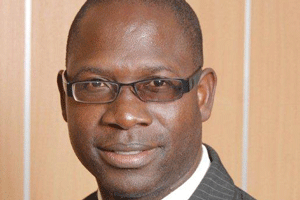
ZIMBABWE’s current account deficit is projected to narrow to 20,5% of gross domestic product (GDP) in 2012, as last year’s import spike is reversed and exports continue to expand, the International Monetary Fund (IMF) has said.Report by Kudzai Chimhangwa A current account is the difference between a nation’s total imports and exports of goods, services and transfers.
The multilateral institution’s executive directors said despite higher exports, the current account deficit widened to 36% of GDP in 2011 from 29% of GDP in 2010, partly due to a sharp increase in imports.
“The deficit was financed by debt-related flows, arrears, and a drawdown of special drawing rights (SDR) holdings, as uncertainties regarding policy implementation continued to affect foreign investment flows,” reads part of an Article IV consultation report by the IMF.
Under a current account deficit situation, the country’s local industry loses aggregate demand to foreign countries. Such demand could stimulate employment opportunities and higher growth in the concerned country.
Following the inception of the multiple currency regime and trade liberalisation in 2009, the current account deficit stood at 22,2% of GDP before spiralling to 36,2% of GDP as imports continued to flood the domestic market.
However, under the Medium-Term Plan, the government plans to grow the export base and curtail imports in order to avert the negative effects of a broadening current account deficit.
In his state-of-the-economy report for August, Finance minister Tendai Biti, said exports and imports maintained an upward trend, cumulatively reaching US$2,16 billion and US$5,1 billion respectively by the end of August 2012. This scenario led to a half-year trade gap of US$3 billion, reflecting faster imports growth during the period under review.
Economist Witness Chinyama said in order to address the perpetual current account deficit, there would be need for the country to implement measures aimed at recapitalising and modernising local industries in line with technological developments.
- Chamisa under fire over US$120K donation
- Mavhunga puts DeMbare into Chibuku quarterfinals
- Pension funds bet on Cabora Bassa oilfields
- Councils defy govt fire tender directive
Keep Reading
“This will go a long way towards capacitating local industry to produce more at lower unit costs, thereby becoming more competitive. At the moment, industry is using an antiquated plant and equipment,” said Chinyama, adding that some industrial structures had been built well before Independence.
IMF directors underscored that improving the business climate would be necessary to strengthen competitiveness, build investor confidence and boost the growth potential.
“The medium-term outlook, under an unchanged policy scenario, is for growth to moderate to average some 4%, although constraints on energy supply and weak competitiveness may pose a challenge to achieving these rates,” IMF said.
“Foreign investment is likely to be hampered by a poor business climate, uncertainties over the implementation of the indigenisation policy and political instability, while domestic investors may face difficulties accessing long-term credit,” reads the IMF report.
Economist Prosper Chitambara said the government would have to implement structural reforms that particularly address competitiveness, the business environment, infrastructure rehabilitation and the cost of doing business, as this is too high in comparison to other countries in the Southern African region.
“The political environment is placing a premium on the country in terms of potential investment inflows. There is also a critical need to ensure that business has cheap access to energy as part of export regeneration measures,” he said.
Chitambara concurred with IMF that refraining from non-concessional borrowing was critical, but presently a difficult task as the liquidity crunch was not getting any better while Treasury had limited options.
Economic commentator Eric Bloch said with forthcoming elections parties in the government would be desperate to raise money in order to pay civil servants with the hope of garnering votes, irrespective of the consequent negative after effects.











